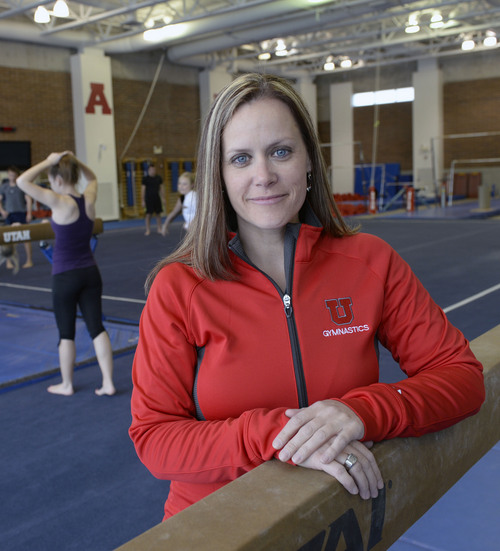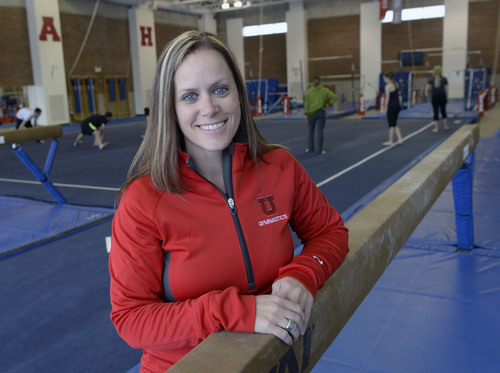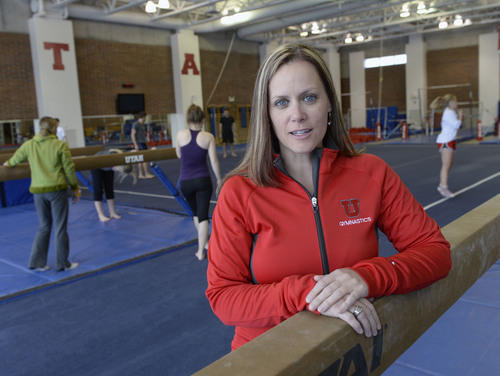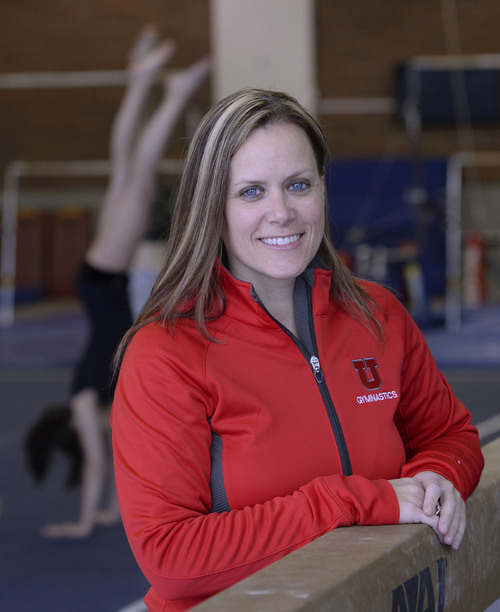This is an archived article that was published on sltrib.com in 2014, and information in the article may be outdated. It is provided only for personal research purposes and may not be reprinted.
If the U.S. aerial ski team crashes out at the Olympics, blame Nicole Detling. If Utah's gymnastics team loses its confidence, blame Detling. If speedskater Jessica Smith continues to struggle at the Olympics, don't blame bad luck or tricky ice, blame Detling.
Is that too much pressure to put on one person? Perhaps, but if there is anyone who can shoulder such a load it is Detling.
She is the Salt Lake City-based sport psychologist who is in the minds of many standout athletes, ranging from members of several University of Utah teams to Olympic athletes.
Currently she is in Sochi, serving as a coach to many of the U.S. Olympians.
A veteran of big competitions, Detling is diplomatic in describing her influence.
"You never take the blame or the credit," she said. "At the end of the day it is the athletes out there who are doing it. I'm just a resource that helps them utilize the skills and abilities they already have."
Detling learned much of her trade under Keith Henschen, the longtime University of Utah professor who has worked with many of the school's athletes as well as numerous professional teams.
As his career has wound down, Detling has taken on more responsibility in the classroom, teaching as well as working with athletes.
Utah's gymnasts credit her for helping them gain a more confident outlook this year.
"She has given us so many tools to help us deal with pressure," junior Kailah Delaney said. "I had been dealing with a lot of anxiety, but she has helped me get that under control."
Delaney uses a technique in which every night she tenses her muscles, then relaxes them and pays attention to how different her body feels. She then comes up with a word that she associates with the relaxed feeling. During competition she uses that word to help her calm down before a routine.
"It has helped a lot," Delaney said. "At this point we have done our skills our whole lives so it really is all mental and being able to handle pressure and dealing with anxiety."
Detling said Delaney's challenges are common in most of the athletes she helps.
"Regardless of their level, whether they are in college or pro or Olympians, most athletes deal with anxiety and confidence," she said. "That doesn't change much. How it manifests itself in different sports is what is different. There are different anxieties in gymnastics than there are in football."
Detling became interested in the mental aspect of sport while studying at Ohio Wesleyan University.
"I wanted a way of mating psychology and sports science," she said. "I was playing basketball and running hurdles and I changed my own mindset to become a better player and runner so I used myself as a case study. My experience really helped solidify what I wanted to do."
Working with Henschen opened up more doors for her. She has helped athletes in more than 25 sports as well as musicians, dancers and medical professionals. While working with a sport psychologist isn't unheard of, Detling is surprised more teams don't use them.
"We're not like Starbucks, we're not on every corner," she said. "But we are out there — just still not enough."
Utah gymnastics coach Greg Marsden said some athletes might have a misconception of what a visit to a sport psychologist is like, making them hesitant to take advantage of their skills.
"They probably think you walk into a dark room where there are candles lit and things like that," he said. "It isn't at all like that. They work with certain things to identify certain strengths and weaknesses. At this level, it's not whether these kids are capable of performing the skills, but can they do it under pressure in front of 15,000 people or at nationals when the meet is on the line."
Detling uses everything from imagery to vocal cues to preparation routines to help athletes succeed.
"A lot of it is the same; you just have to find out where they are starting from and where they need to be," she said.
Perhaps one of her greatest challenges is Georgia Dabritz. Despite the gymnast's success this year, she still struggles with confidence on the balance beam. However, Dabritz is getting better, scoring 9.8 or higher during exhibitions at the last two meets. She is hoping to break into the beam lineup, with Detling's help.
"She has given me some different verbal cues and breathing techniques, and things like that have helped," Dabritz said. "Every time I start my routine I find a focal point in the gym to help me focus."
So far it has worked, as have many other of Detling's techniques.
With the gymnastics team in the midst of its season and the Olympics ongoing, a lot of athletes are counting on Detling to help them maximize their talent. She is as cool about her influence as she hopes they are about their competitions.
"It's all about finding what works for each athlete," she said of sport psychology. "It's like pieces of clay and you just mold it to fit the different sports." —
About Nicole Detling
• Assistant professor in exercise and sport sciences at the University of Utah.
• Worked with U.S. Speedskating team from 2008 to 2013.
• Consults with the freestyle aerials team.
• Works with the University of Utah gymnastics, baseball and softball teams as well as other individual athletes. —
Utah at Stanford
P Monday, 3 p.m.
TV • Pac-12 Networks









